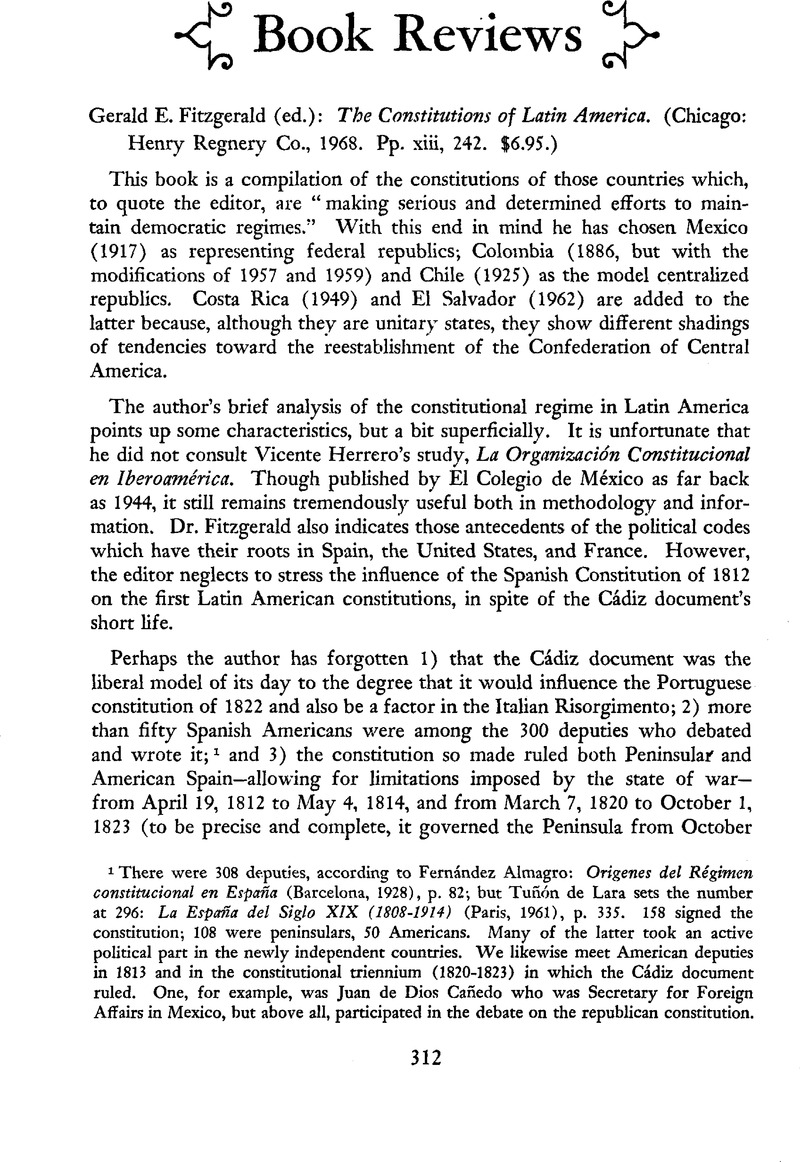No CrossRef data available.
Article contents
Gerald E. Fitzgerald (ed.): The Constitutions of Latin America. (Chicago: Henry Regnery Co., 1968. Pp. xiii, 242. $6.95.)
Published online by Cambridge University Press: 11 December 2015
Abstract

- Type
- Reviews and short notices
- Information
- Copyright
- Copyright © Academy of American Franciscan History 1969
References
1 There were 308 deputies, according to Almagro, Fernández: Orígenes del Régimen constitucional en España (Barcelona, 1928), p. 82 Google Scholar; but Tuñón de Lara sets the number at 296: La España del Siglo XIX (1808-1914) (Paris, 1961), p. 335 Google Scholar. 158 signed the constitution; 108 were peninsulars, 50 Americans. Many of the latter took an active political part in the newly independent countries. We likewise meet American deputies in 1813 and in the constitutional triennium (1820-1823) in which the Cádiz document ruled. One, for example, was Juan de Dios Cañedo who was Secretary for Foreign Affairs in Mexico, but above all, participated in the debate on the republican constitution.
2 Americans of that period considered the constitution as much their own as the Spaniards did. This can be demonstrated even at present. Cf. for example, the “Publicaciones del Centenario de la Republica Dominicana,” Serie I: Constituciones Políticas y Reformas Constitucionales (Santiago de los Caballeros, 1944), II Google Scholar; El Pensamiento Constitucional Hispanoamericano hasta 1830 (Caracas: Biblioteca de la Academia Nacional de la Historia, 44 (1961) “Venezuela: Constitución de Cádiz,” V, 285–395 Google Scholar. To form a clear idea of American participation, see Galván, Tierno, Actas de las Cortes de Cádiz: Antología (2 vols.; Madrid, 1964)Google Scholar.
3 In his Apología del Altar y del Trono (Valencia, 1820-1825)Google Scholar, Archbishop Rafael de Velez of Santiago asserts that the Constitution of Cádiz is a mere reproduction of the French constitution of 1791.


